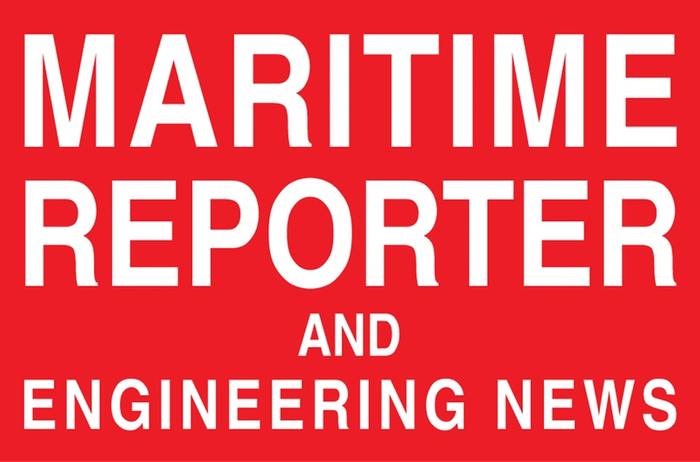Insights
Training Tips for Ships
Training Beyond Generations:
How AI Memorializes Maritime Expertise and Corporate DNA
By Heather Combs, CEO, Ripple Operations
This industry has long relied on the wisdom and experience of seasoned mariners to train the next generation. However, as more experienced officers and engineers retire, a vast amount of practical and contextual knowledge risks being lost. This includes lessons learned from real-world incidents, vessel-specific troubleshooting methods, and critical decision-making skills that cannot always be captured in training manuals. Without an intentional effort to preserve and transfer this knowledge, future crews may struggle with the same challenges their predecessors mastered through years of experience. AI presents an opportunity to bridge this gap by capturing, organizing, and distributing knowledge in ways that traditional training methods cannot. Instead of letting hard-earned expertise fade away, AI-driven systems can ensure that the lessons of the past remain available to guide the mariners of the future.
Building AI-Driven Knowledge Repositories
Many organizations have vast amounts of “knowledge” in training materials, incident reports, operational manuals, logs, informal crew guidance, even audio and video recordings. While this information exists across various sources, it is rarely treated as a unified resource from which broader insights can be drawn. AI-powered knowledge management systems centralize and categorize these resources, making them easily searchable and interactive. A junior officer needing guidance on a complex process could consult an AI agent trained on decades of expertise, receiving instant, context-aware insights. These agents also serve as virtual mentors, offering real-time operational and safety advice. For example, by analyzing AIS data and correlating it with past incidents or near-misses, AI can provide mariners with timely alerts on potential hazards relevant to their current location. Their true value, however, lies in the continuous effort to refine these agents with company-specific expertise—ensuring lessons from past incidents, best practices, and institutional knowledge are preserved and accessible to future generations.
Learning from Past Incidents: AI in Risk-Based Training
One of the most effective ways to improve safety is to learn from past incidents and near-misses. Traditionally, these reports are compiled into databases or training seminars, but they often remain underutilized. AI can analyze years of data, identify patterns, and recommend, or even generate, scenario-based training exercises that mirror real-world events. For example:
-
If past data shows that a particular type of machinery failure has led to a series of breakdowns, AI could generate training content focused on maintenance protocols that minimize the risk of future failures.
-
Near-miss reports could be fed into AI systems that recreate high-risk scenarios in simulations, allowing mariners to practice decision-making in lifelike conditions without real-world consequences.
-
AI could adapt training exercises and automatically enroll employees in specific courses based on past mistakes, or work schedules that have them working on a new vessel or port.
By continuously integrating past experiences into future training, AI can transform static learning into a dynamic, evolving process that enhances situational awareness and decision-making.
Expert Systems for Decision Support
Traditionally, mariners develop their ability to make sound decisions through years of trial and error, often under the guidance of more experienced crew members. But as vessel technology becomes more complex and experienced mentors become scarcer, AI-powered expert systems can help fill this gap. These systems can suggest best practices, troubleshoot operational problems, and recommend procedures based on historical case studies and real-time data. Instead of relying solely on intuition, mariners can consult AI-driven agents to receive data-backed recommendations for navigation, maintenance, and emergency response. While AI may never replace human decision-making, it can act as a force multiplier, ensuring that mariners have access to collective knowledge beyond their own experience when making critical choices at sea.
Digital Apprenticeship: AI-Enhanced Mentoring
One of the most valuable aspects of maritime training has always been the apprenticeship model, where junior mariners learn by working alongside more experienced colleagues. However, with fewer opportunities for long-term mentorship due to crewing shortages and increased automation, AI can help recreate this learning experience in new ways.
AI-powered digital apprenticeships can provide:
-
Vessel-specific training modules based on actual equipment, ensuring mariners train on systems identical to those they will operate.
-
Simulations that incorporate recorded insights from senior mariners, allowing trainees to experience real-life decision-making scenarios guided by expert commentary.
-
Adaptive training paths that customize learning experiences based on mariners’ performance and areas needing improvement.
By integrating AI into mentorship programs, organizations can ensure that knowledge is not just passed down informally but structured, memorialized, and continuously updated for future generations.
What Trainers Can Do Now
For AI to enhance training, it needs well-structured knowledge. Trainers should take proactive steps to capture and organize expertise:
-
Identify and Catalog Knowledge – Training content exists in more than just documents. Identify videos, recorded drills, operational logs, and informal guidance as valuable sources.
-
Centralize and Digitize – Scattered data leads to lost knowledge. Store training materials, procedures, and documented experiences in a structured, cloud-based repository—ensuring accessibility today while laying the foundation for future AI integration.
-
Use AI-Powered Tools – Explore LMS platforms, chatbots, and digital mentorship tools that make knowledge more accessible and interactive.
-
Promote Knowledge Sharing – Encourage mariners to contribute insights, document procedures, and record troubleshooting steps to ensure expertise isn’t lost.
-
Expand the Knowledge Base – Seek out gaps and create new sources, such as video walkthroughs, Q&A sessions, and vessel-specific training modules.
Taking these steps ensures that knowledge is preserved and accessible today while also preparing for future AI-driven training and decision support.
Conclusion
AI may never replace human expertise at sea, but it can ensure that the hard-earned knowledge of today’s mariners remains accessible for generations to come. By harnessing AI-driven tools for knowledge preservation, training adaptation, and decision support, maritime organizations can strengthen the bridge between experience and innovation. The future of maritime training will not be about choosing between AI and human expertise—it will be about using AI to keep expertise alive.
Thank you for reading, and until next time, sail safely!

About the Author
Heather Combs is the newly appointed CEO of Ripple Operations and AdonisHR. She is a Global Executive, highly successful in fueling revenue growth through strategic alignment of product development with go-to-market strategy, business development, sales, marketing, and operational functions across diverse industries.

